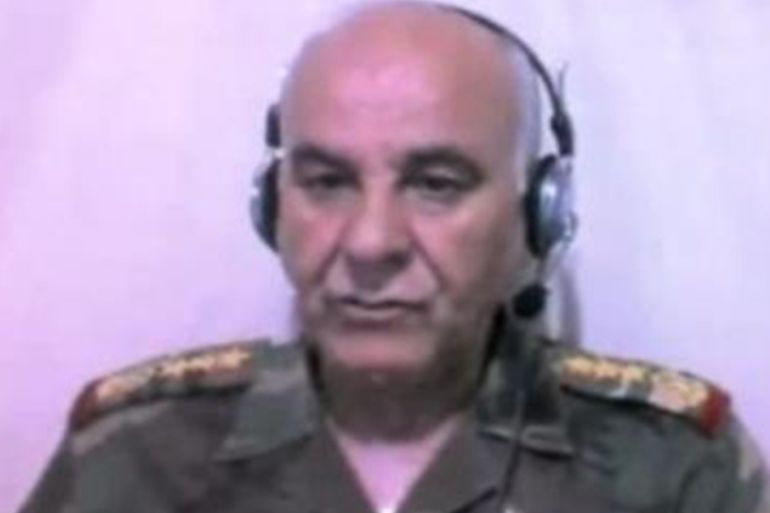Former FSA commander’s visit to Moscow stirs anger
Members of the Free Syrian Army denounced a visit by a former rebel commander to Russia.

Just days before Syria talks start in Kazakhstan’s capital, Astana, former Free Syrian Army (FSA) commander Mustafa al-Sheikh visited Moscow and met Russian officials.
Sheikh, a former general in the Syrian army, was the highest-ranking officer to defect from the Assad regime forces in late 2011 and was head of FSA’s supreme military council.
Over the weekend, FSA members denounced the visit by Sheikh, saying it was not coordinated with them.
“[His visit] caused a lot of anger within the FSA because he took an individual decision and this decision does not represent the FSA,” FSA officer Hassan Hamada told Al Jazeera.
READ MORE: Free Syrian Army decimated by desertions
”[His
caused a lot of anger within the FSA because he took an individual decision and this decision does not represent the FSA.”]
On January 10, Russia’s foreign ministry announced that Sheikh and a “group of Syrian opposition figures” had met Deputy Foreign Minister Mikhail Bogdanov to discuss the situation in Syria. Sheikh, who left the FSA in 2013, praised Russia’s role in Syria in a subsequent press conference broadcast live by Russia Today on January 13.
“The intervention of Russia is different from the intervention of the rest of parties involved [that] have other agendas. Russia is a great nation and doesn’t need to occupy Syria,” said Sheikh during the conference, claiming that he was part of a delegation of Syrian military officers and politicians to discuss ending the war in Syria.
“Aleppo became safe haven. I personally hope that [Russia] enters, in the same way it did Aleppo, all other regions [in Syria],” he added.
Sheikh’s visit came amid negotiations in Ankara between rebel groups, including the FSA, on participation in the Russia-led talks in Astana, and accusations against the Assad regime of breaking the ceasefire.
His statements caused a social media storm, with many accusing him of treason and others suggesting a military trial against him.
READ MORE: Syria’s Civil War Explained
Osama Abu Zeid, legal adviser to the FSA, said the FSA rejected what Sheikh said during the news conference and that it “caused anger among Syrian revolutionaries because his statements were offensive”.
In 2013, Sheikh left the FSA and applied for asylum in Sweden.
During the press conference in Moscow, Sheikh claimed that he was not representing any faction, but that he stood for the will of the Syrian people. In a January 16 post on his personal account on Facebook, Sheikh wrote that he was part of a group of military officers working on a project “to save Syria”. The project was presented to Russia, which he believed supported “the interest of the Syrian people”.
Since Russia’s direct military intervention started in September 2015, the Russian military has attacked positions of various FSA factions across Syria, as Moscow claimed it was fighting only “terrorist” groups.
A day before the December 30 ceasefire took effect, the Russian defence ministry published a list of Syrian armed opposition groups which it deemed “moderate”; the list included FSA factions, as well as Ahrar al-Sham.
After five days of negotiations in Ankara, the FSA, along with other groups of the armed Syrian opposition, announced on Monday that they will participate in the Astana talks, scheduled to begin on January 23.
Mohammad Alloush, head of the political wing of Jaish al-Islam, is to lead the delegation, which will sit on the negotiations table with Russia, Turkey, and Iran.
Another round of negotiations is expected to take place in Geneva in February.